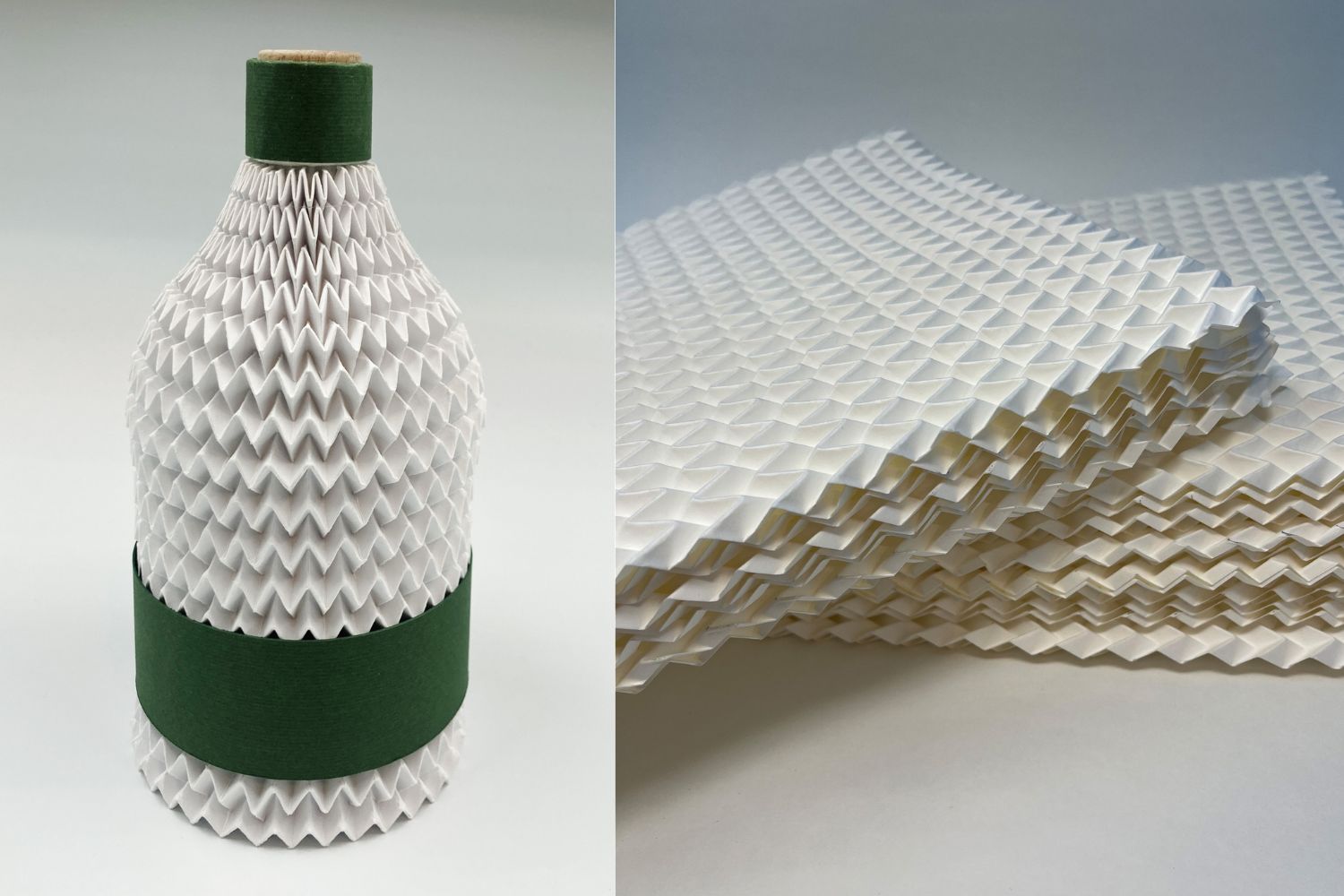An origami-inspired foldable cardboard reduces over-packaging and plastic use. A sustainable solution for e-commerce, cosmetics, and food service

Table of contents
How many times have you received a small item in an oversized box, filled with unnecessary plastic and paper? Over-packaging is a widespread problem in online commerce and logistics, with a significant environmental impact. According to Arcep, in 2023 alone, 7.3 billion packages were shipped, many of them with excessive packaging.
A possible solution comes from Finland: FOLD, a foldable cardboard developed by the VTT Technical Research Centre of Finland in collaboration with Aalto University. Inspired by origami, this packaging is flexible, durable, and recyclable, with the goal of reducing superfluous materials and improving logistics efficiency.
How does the foldable cardboard FOLD work?

©VTT
The name FOLD refers to its structure based on origami folding techniques. Thanks to this design, the cardboard becomes sturdy and adaptable, eliminating the need for protective plastics and fillers.
The main advantage is waste reduction: less plastic, fewer unnecessary materials, and greater ease of recycling. Unlike many prototypes still in the experimental phase, FOLD is already being tested with several companies to verify its feasibility on a large scale.
What are the possible applications?

©VTT
Thanks to its versatility, the foldable cardboard can be used in various sectors, reducing waste and improving packaging management.
Cosmetics: more sustainable packaging
In the cosmetics sector, many packages end up immediately in the trash. FOLD could offer a reusable, plastic-free alternative, making packaging more functional and less impactful.
Fast food: an alternative to polystyrene
Takeout food packaging is often made of plastic or polystyrene. A foldable cardboard that’s moisture-resistant could represent a more sustainable option, reducing the use of materials that are difficult to dispose of.
E-commerce: custom-fit packaging
One of the most common problems in e-commerce is the use of boxes that are too large for their contents, resulting in waste of materials and space. An adaptable packaging would optimize transportation and reduce the environmental impact of shipments.
A project already in the testing phase
The idea is still under development but could be commercialized within three to five years. Some European and American companies are testing FOLD to evaluate its applicability on a large scale.
The advantages are both ecological and economic: reduced production costs, less storage space in warehouses, and a concrete response to the growing demand for more sustainable packaging.
If this technology becomes widespread, over-packaging could become a problem of the past, with benefits for the environment and the logistics sector.
Source: Vttresearch
